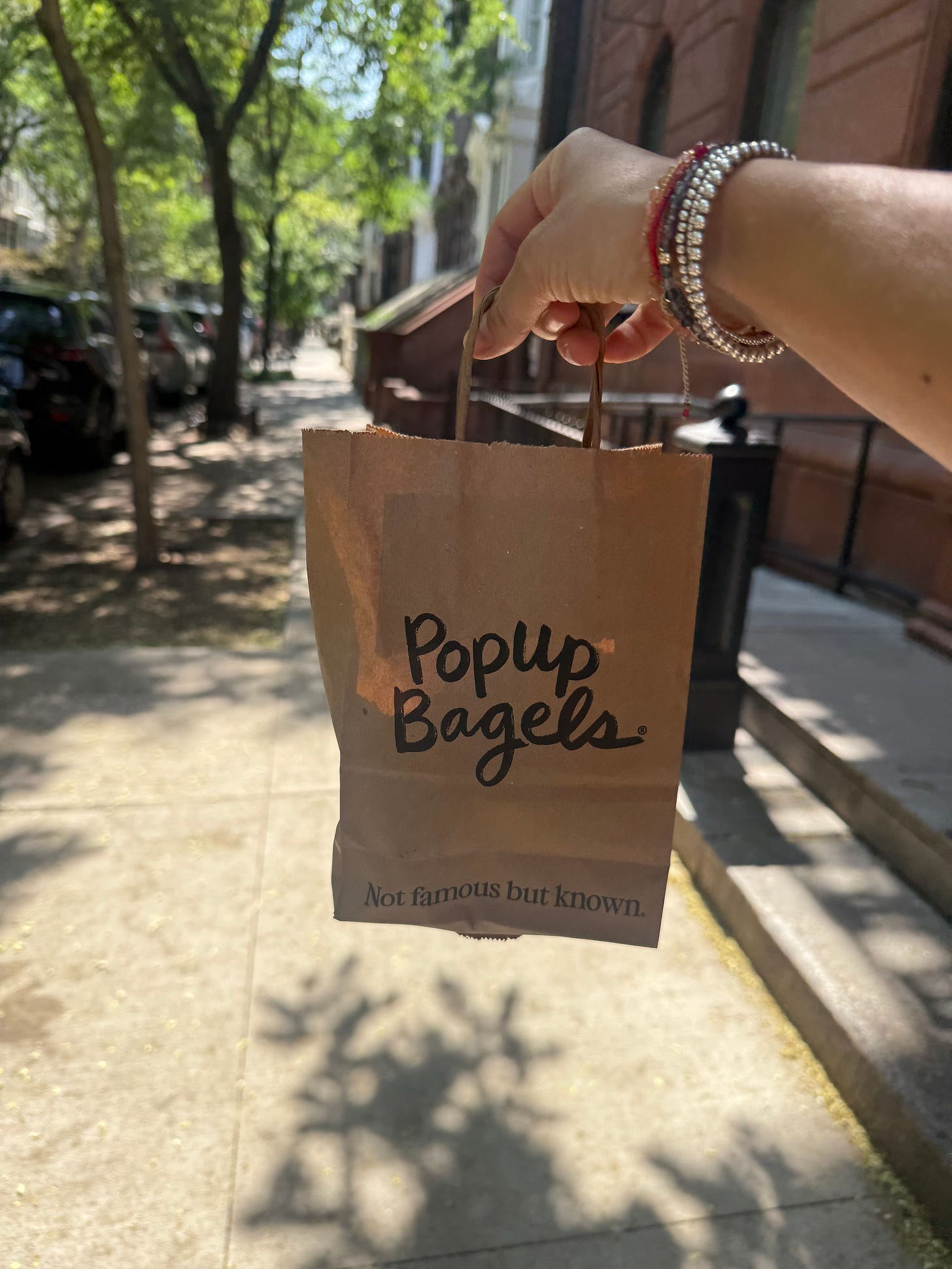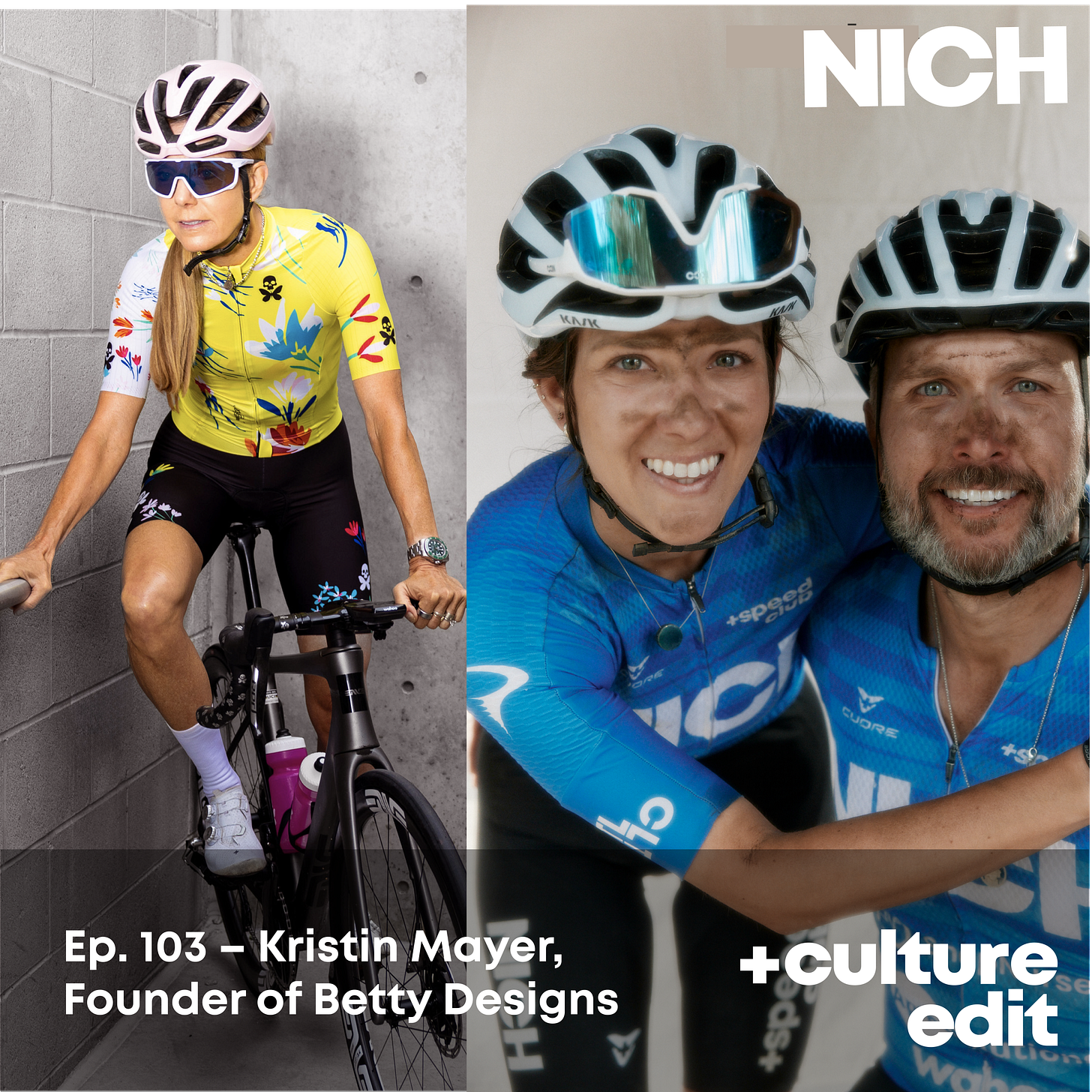When Culture Goes Basic
Work Having a Beige Flag Era?
It’s no secret, social media and the internet is flattening modern culture. Smash burgers, matcha, New Balance, the list of “basics” is getting long. Last week we were in Manhattan, excited to get Pop-up bagels, only to return to find out we will have one in our neighborhood soon. They suddenly became less desirable.
Social media algo’s are creating a gravitational pull toward sameness.
The same thing has been happening to workplace culture for years. Remember the mid-2000s rush to "be like Google"? I was a head of HR and Culture at the time, completely enamored with these examples. Suddenly, every office needed open floor plans, bean bags, and kombucha on tap. The Netflix Culture Deck was passed around boardrooms more than the LTI calculator.
The irony was that our organization actually had an amazing culture. I can say that now, with hindsight and a decade of experience evaluating other cultures. It was certainly “different” and unorthodox, but it got results. But at the time, it was easy to think that you needed to replicate others because they were successful. Now we know that in many cases, culture isn’t what made them successful.
They were being copied due to the performance of culture, not the practice of it. Those tech companies weren't great places to work because they had kombucha machines. The kombucha was just what you could see. What you couldn't see were the decision-making frameworks, the actual behaviors that got rewarded, the real conversations happening when problems arose.
Netflix's culture wasn't radical because of how it was written. It was radical because they actually fired high performers who didn't fit their values. Most companies loved the language about "dream teams" but weren't willing to have the difficult conversations or make the hard decisions that created that culture.
Organizations with genuinely great cultures have something in common: they're not trying to be anyone else. They have what we call “cultural confidence,” the belief that their way of working actually matters.
Take our client PulteGroup, a Fortune 100 Great Places to Work company with top 5% Gallup engagement scores globally. They didn't get there by copying Silicon Valley playbooks. They built their culture around what matters in their business: hiring smart people and training them to build incredible places where people live their dreams. Sounds simple, but trust us, it’s a hard (hard) and consistent commitment to excellence.
As AI makes many tasks feel increasingly standardized, authentic culture becomes one of the few sustainable advantages organizations have. But building it requires patience with being different and the discipline to focus on what actually works rather than what gets the most likes.
The companies that will thrive aren't the ones with the most innovative office design. They're the ones brave enough to figure out who they actually are and confident enough to be that, consistently, even when no one's watching.
Because real culture, like real people, can't be copy-pasted. It can’t be “flattened.”
And maybe that's exactly the point.
The smash burger as an analogy to culture being flattened.
AI: Major Threat or Just the Next Tech Thing?
A majority say they will resist AI as long as possible, and young males are the leading users.
Inside the $10,000 Job Search: Career Coaching, LinkedIn Fees, Résumé Help
Hate to say this is a reality today.
Goodbye, $165,000 Tech Jobs. Student Coders Seek Work at Chipotle.
Ouch.
'Quiet cracking' is the dangerous new trend affecting millions of workers
Not a new thing, just a new way to label it.
A Peacock’s-Eye View of the Waldorf Remade
It’s been under renovation since 2017. Wow.
JPMorgan Employees Have to Pay for Their Onsite Gym. It’s Not Going Over Well Online
Thoughts and prayers…
She might be the world’s best receiver: Meet Isabella Geraci, U.S. flag football star
100 years of Art Deco: a movement comes of age
Culture Edit Podcast:
Ep. 103 - Kristen Mayer, Betty Designs
In this episode with Kristin Mayer, mom, designer and athlete, we explore her journey that led her to create the iconic brand Betty Designs. From her early days in art school to her time at legendary brand LA Gear, she shares her story of entrepreneurship and how she and Betty Designs have evolved together over the years. We discuss industry trends, sources of design inspiration, and how sometimes you just have to let copycats roll off your back (even though it's tough). If you're looking for inspiration for that new idea or want to learn more about how cycling brands are built, this episode is for you. Proof that grit, passion, and hard work always pay off.





Enjoyed this one :)